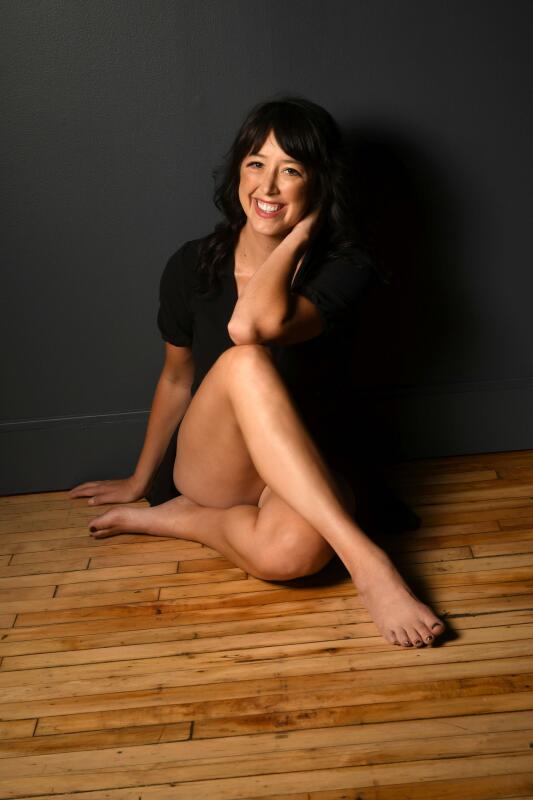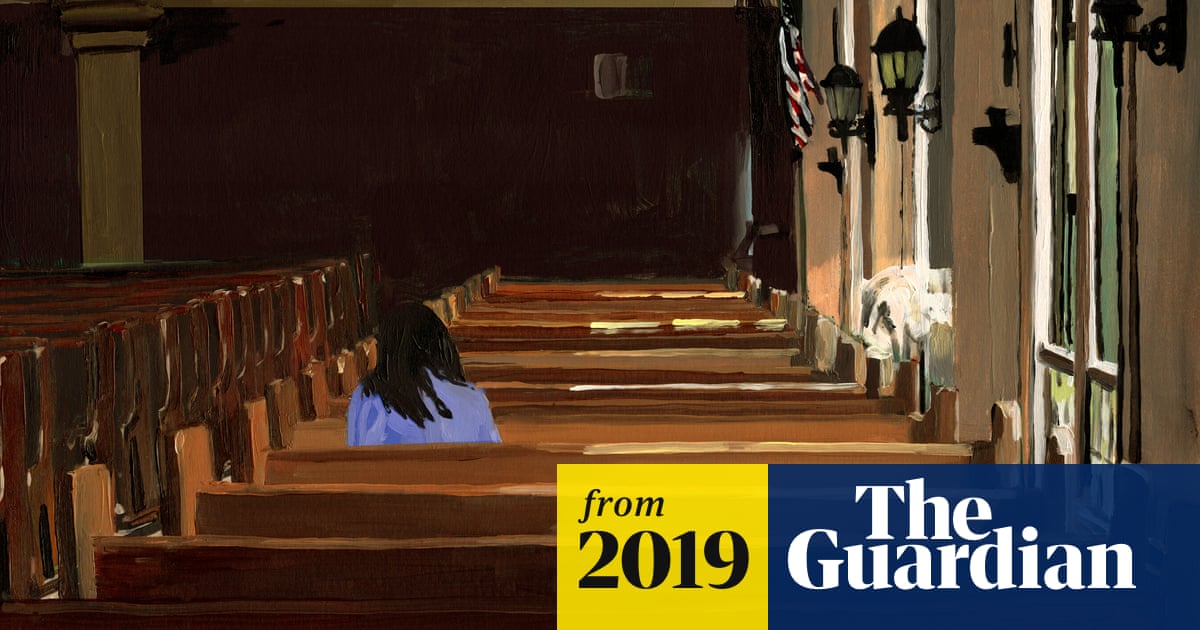Getting married is often seen as a milestone achievement — right up there with buying a house or having kids.
But when Lyz Lenz, former columnist for The Gazette and now acclaimed author and writer for the New York Times, Time, and the Washington Post, got married at 22, she quickly discovered that marriage wasn’t always about both partners equally supporting each other. In fact, it was often about the woman providing free labor and support for the man.
After filing for divorce, Lenz found her life as a single-parent was filled with more: more time, more autonomy, and more lucrative work opportunities.
“Marriage is touted as a solution for everything from child care to poverty. But those benefits rest on the unpaid labor of women,” Lenz said in a recent interview.
In her latest book, “This American Ex-Wife: How I Ended My Marriage and Started My Life,” Lenz blends extensive research with her own story to explore the role marriage plays in our society.
This American Ex-Wife by Lyz Lenz
“I wanted to write a book that acted as counter programming to the message that marriage was the solution. I wanted to show that actually, for women, it’s often a form of entrapment.”
“In a world that seems to see marriage as an uncritical good, I wanted to say, ‘Actually, it’s not that great and there are other ways to live.’"
This interview has been edited for clarity and length.
Q: You did quite a bit of research for this book. Did you find anything surprising?
A: One of the things that surprised me the most was research that indicated that countries with liberal divorce laws saw women make more money, have longer lasting relationships, kids stay in school longer, and rates of domestic violence decrease. In sum, when women are given freedom and opportunity, everyone benefits.
So, when I hear politicians and pundits say we should make divorce harder, I realize it’s not about strengthening American families. If we wanted to do that we would empower people with choices, because that’s what the data shows.
I also saw data from a study that showed that women who made more than their husbands were more likely to be victims of domestic violence, and I think that reveals how deeply entrenched these toxic gender dynamics are in our relationships.
Q: My ex-wife and I are divorced. Did your research focus on heterosexual couples, or did you find overlaps that could apply to all marriages?
A: The sacred cow I am slaughtering with this book is specifically heterosexual marriage, because that's the system that is being touted as a political and economic solution for American problems. And there isn't enough research on gay marriage because it hasn't been around long enough. Which I think speaks to the power of marriage in our society that it's such a metonym for social order that it takes an act of the Supreme Court to change it.
However, I do think toxic gender dynamics trap us all. We are all raised in this culture and sexuality doesn’t absolve us of the messages we receive in our churches, from our parents, and from movies and books. I've heard from a lot of queer friends who talked about how they replicated these dynamics in their own marriages and lives. Part of the goal of this book is to push back against binaries and queer the understanding of love and relationships.
Q: I’m sure you’ll get lots of interesting emails once this book comes out. Why do you think people have so many opinions about marriage?
A: A lot of people keep asking me questions that are focused on the backlash I will receive. And as a former employee of local Iowa news, who has written about white nationalists, Tucker Carlson, Ron DeSantis and so much more, I am no stranger to backlash and I don’t think it's specific to the topic I am writing about.
Rather, I think it's more important to analyze the reasons why people feel comfortable shouting at, demeaning and firing women who challenge them. It's because even now, in 2024 an intelligent, liberated woman is a threat. A successful woman who exists outside the systems and prescribed boxes is seen as dangerous and people will do anything to push her back inside.
It's not just that people have opinions on marriage. It's that people do not like to see a woman successfully and freely exist outside of the binaries. And that's what this book does. It shows that the narrative of happily ever after is flimsy and precarious and that life on the other side can be fulfilling and glorious and beautiful. Also, I relish a little backlash. If what I wrote made people comfortable, I wouldn't be doing good work.
Q: What are some of the best things about being divorced?
A: Peace. Quiet. Not having someone expect an emotional performance of me …. I go hang out with friends or have people over and there is no one huffing about it in the corner.
I recently bought a beautiful piece of art for my wall that was priced like $200 less than what you can find online. And the guy selling it said the previous woman who tried to buy it couldn't because her husband told her to haggle and was such a jerk about the price, the seller eventually just told the couple to leave. I feel bad for that woman. I used to be that woman. But now I have a lovely home, I make more money, and that piece of art is above my bed.
I know even happily married women who tell me in secret that if something happened to their marriages, they'd never remarry. Our society fetishizes marriage so much, we've failed to fully understand how much of it is predicated on women's labor and misery. Not my life. Not anymore.
For couples who decide they do want to get married: what conversations should they absolutely be having before they get hitched?
See, for me, when you say what conversations “couples” should have, I know that in the case of cis/het couples, this will always be the woman initiating these conversations and I hate that. So, I am not giving that advice.
The advice I would give is that men in these cis/het relationships would take on the duty of reading “Fair Play” by Eve Rodsky, getting the Fair Play cards, examining the labor they do. Like actually being honest about it. And I wish that women would sit down and really think through the things they are compromising on and ask themselves why they feel they need to do that.
If you have to compromise on your career or give up your last name to make a partner happy, you are already giving up too much. And I know there is a Greek chorus of well-meaning people saying, "Well that’s just how relationships work." Actually, no. Because he's not giving up those things. So, why should you? Why sacrifice yourself on the pyre of a relationship that has no room for you?
Be pickier, be bolder, don’t be afraid to break things. Don’t be afraid to walk away. It’s great out here.

 www.thegazette.com
www.thegazette.com
But when Lyz Lenz, former columnist for The Gazette and now acclaimed author and writer for the New York Times, Time, and the Washington Post, got married at 22, she quickly discovered that marriage wasn’t always about both partners equally supporting each other. In fact, it was often about the woman providing free labor and support for the man.
After filing for divorce, Lenz found her life as a single-parent was filled with more: more time, more autonomy, and more lucrative work opportunities.
“Marriage is touted as a solution for everything from child care to poverty. But those benefits rest on the unpaid labor of women,” Lenz said in a recent interview.
In her latest book, “This American Ex-Wife: How I Ended My Marriage and Started My Life,” Lenz blends extensive research with her own story to explore the role marriage plays in our society.
This American Ex-Wife by Lyz Lenz
“I wanted to write a book that acted as counter programming to the message that marriage was the solution. I wanted to show that actually, for women, it’s often a form of entrapment.”
“In a world that seems to see marriage as an uncritical good, I wanted to say, ‘Actually, it’s not that great and there are other ways to live.’"
This interview has been edited for clarity and length.
Q: You did quite a bit of research for this book. Did you find anything surprising?
A: One of the things that surprised me the most was research that indicated that countries with liberal divorce laws saw women make more money, have longer lasting relationships, kids stay in school longer, and rates of domestic violence decrease. In sum, when women are given freedom and opportunity, everyone benefits.
So, when I hear politicians and pundits say we should make divorce harder, I realize it’s not about strengthening American families. If we wanted to do that we would empower people with choices, because that’s what the data shows.
I also saw data from a study that showed that women who made more than their husbands were more likely to be victims of domestic violence, and I think that reveals how deeply entrenched these toxic gender dynamics are in our relationships.
Q: My ex-wife and I are divorced. Did your research focus on heterosexual couples, or did you find overlaps that could apply to all marriages?
A: The sacred cow I am slaughtering with this book is specifically heterosexual marriage, because that's the system that is being touted as a political and economic solution for American problems. And there isn't enough research on gay marriage because it hasn't been around long enough. Which I think speaks to the power of marriage in our society that it's such a metonym for social order that it takes an act of the Supreme Court to change it.
However, I do think toxic gender dynamics trap us all. We are all raised in this culture and sexuality doesn’t absolve us of the messages we receive in our churches, from our parents, and from movies and books. I've heard from a lot of queer friends who talked about how they replicated these dynamics in their own marriages and lives. Part of the goal of this book is to push back against binaries and queer the understanding of love and relationships.
Q: I’m sure you’ll get lots of interesting emails once this book comes out. Why do you think people have so many opinions about marriage?
A: A lot of people keep asking me questions that are focused on the backlash I will receive. And as a former employee of local Iowa news, who has written about white nationalists, Tucker Carlson, Ron DeSantis and so much more, I am no stranger to backlash and I don’t think it's specific to the topic I am writing about.
Rather, I think it's more important to analyze the reasons why people feel comfortable shouting at, demeaning and firing women who challenge them. It's because even now, in 2024 an intelligent, liberated woman is a threat. A successful woman who exists outside the systems and prescribed boxes is seen as dangerous and people will do anything to push her back inside.
It's not just that people have opinions on marriage. It's that people do not like to see a woman successfully and freely exist outside of the binaries. And that's what this book does. It shows that the narrative of happily ever after is flimsy and precarious and that life on the other side can be fulfilling and glorious and beautiful. Also, I relish a little backlash. If what I wrote made people comfortable, I wouldn't be doing good work.
Q: What are some of the best things about being divorced?
A: Peace. Quiet. Not having someone expect an emotional performance of me …. I go hang out with friends or have people over and there is no one huffing about it in the corner.
I recently bought a beautiful piece of art for my wall that was priced like $200 less than what you can find online. And the guy selling it said the previous woman who tried to buy it couldn't because her husband told her to haggle and was such a jerk about the price, the seller eventually just told the couple to leave. I feel bad for that woman. I used to be that woman. But now I have a lovely home, I make more money, and that piece of art is above my bed.
I know even happily married women who tell me in secret that if something happened to their marriages, they'd never remarry. Our society fetishizes marriage so much, we've failed to fully understand how much of it is predicated on women's labor and misery. Not my life. Not anymore.
For couples who decide they do want to get married: what conversations should they absolutely be having before they get hitched?
See, for me, when you say what conversations “couples” should have, I know that in the case of cis/het couples, this will always be the woman initiating these conversations and I hate that. So, I am not giving that advice.
The advice I would give is that men in these cis/het relationships would take on the duty of reading “Fair Play” by Eve Rodsky, getting the Fair Play cards, examining the labor they do. Like actually being honest about it. And I wish that women would sit down and really think through the things they are compromising on and ask themselves why they feel they need to do that.
If you have to compromise on your career or give up your last name to make a partner happy, you are already giving up too much. And I know there is a Greek chorus of well-meaning people saying, "Well that’s just how relationships work." Actually, no. Because he's not giving up those things. So, why should you? Why sacrifice yourself on the pyre of a relationship that has no room for you?
Be pickier, be bolder, don’t be afraid to break things. Don’t be afraid to walk away. It’s great out here.
Author Lyz Lenz praises life outside marriage in new book
In her latest book, “This American Ex-Wife: How I Ended My Marriage and Started My Life,” Lyz Lenz blends extensive research with her own story to explore the role marriage plays in our society.

